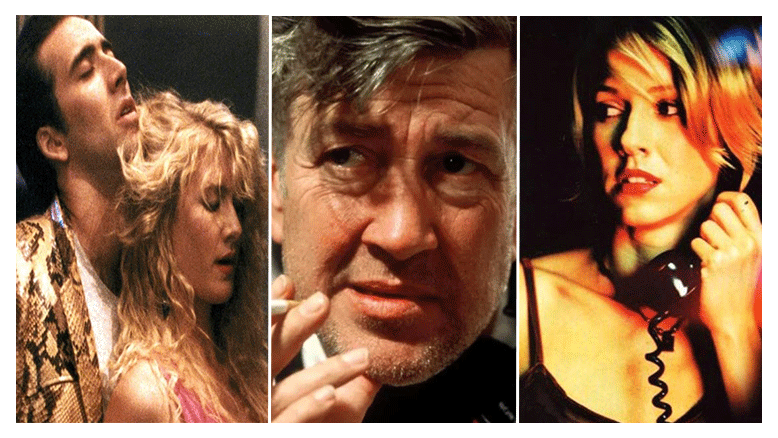David Lynch is renowned for his unique and often surreal style of filmmaking, which blends elements of mystery, horror, and the absurd.
Why is David Lynch a popular director? What is so unique about his Movie Styles?
The popularity of the movie director, David Lynch, stems from his unparalleled ability to craft cinematic experiences. His films transcend traditional storytelling norms and delve into the deepest recesses of the human psyche. What sets Lynch apart is his unapologetic embrace of the surreal and the absurd, weaving intricate narratives that blur the lines between reality and fantasy. His films are often characterised by a dreamlike atmosphere, haunting imagery, and enigmatic characters who inhabit worlds filled with mystery and intrigue.
David Lynch has an uncanny talent for tapping into universal fears and desires. He explores themes of identity, existential angst, and the dark underbelly of human nature with unparalleled depth and complexity. He consistently challenges audiences to confront their deepest fears and the complexities of the human condition. Lynch masterfully combines visual and auditory elements to create immersive and emotionally resonant experiences through his movies. He employs diverse techniques, from striking cinematography and meticulous sound design to surrealistic imagery and nonlinear storytelling, to transport viewers into his meticulously crafted worlds.
Lynch’s films often unfold like intricate puzzles, inviting audiences to unravel layers of meaning and symbolism hidden beneath the surface. His use of symbolism and metaphor adds layers of depth to his narratives, allowing for multiple interpretations and encouraging viewers to engage with his work on a profound level. Fans appreciate Lynch’s bold creativity and unwavering commitment to pushing cinematic boundaries. His willingness to embrace the unconventional and challenge conventional storytelling conventions has earned him a devoted following. In essence, David Lynch’s popularity as a director lies in his unparalleled ability to create cinematic experiences that are as thought-provoking as they are visually stunning, leaving an indelible mark on filmmaking.
David Lynch Movies
Here are my six favourite David Lynch movies that will blow your mind.
BLUE VELVET, 1986
In David Lynch’s “Blue Velvet,” a young man named Jeffrey Beaumont discovers a severed ear in a suburban field. It leads him into a nightmarish journey of intrigue and perversion. He becomes entangled with the enigmatic nightclub singer Dorothy Vallens and the sadistic criminal Frank Booth. As Jeffrey investigates, he uncovers the dark and twisted secrets lurking beneath the surface of his seemingly idyllic hometown. And anything that involves a severed human ear, a nightclub singer’s kidnapped child, and a sinister conspiracy has my attention.
“Blue Velvet” is a provocative and unsettling exploration of the underbelly of American suburbia. The psychological thriller explores themes of voyeurism, sexual deviance, and the duality of human nature, creating a depressing and surreal atmosphere. This movie has been a classic for years, so if you haven’t seen it, add it to your queue.
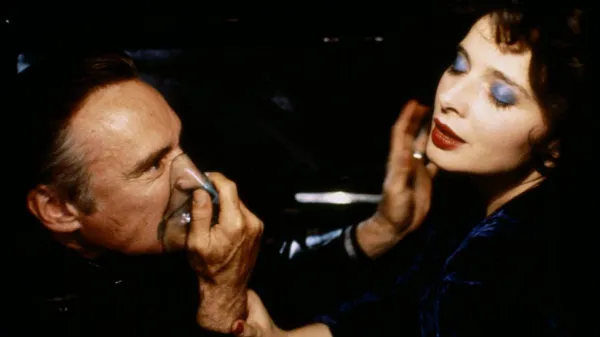
THE ELEPHANT MAN, 1980
Directed by David Lynch, “Elephant Man” is a poignant and compassionate portrayal of humanity’s capacity for cruelty and kindness. Based on the true story of Joseph Merrick, portrayed by John Hurt, the film follows the tragic life of a severely deformed man. He is rescued from a life of exploitation and displayed as a circus freak. As Merrick forms a bond with Dr. Frederick Treves, played by Anthony Hopkins, the film delves into the complexities of human nature and the power of empathy to transcend physical differences.
“Elephant Man” is a timeless classic, celebrated for its profound message of compassion and acceptance. The film delves into the depths of the human soul. It offers a profound meditation on the nature of beauty, identity, and the importance of empathy. Lynch’s masterful direction, empathetic storytelling, and evocative cinematography capture the isolation and dignity of Merrick’s (lead character) existence. It highlights diverse emotions like sorrow, hope, and the beauty found within the human spirit.
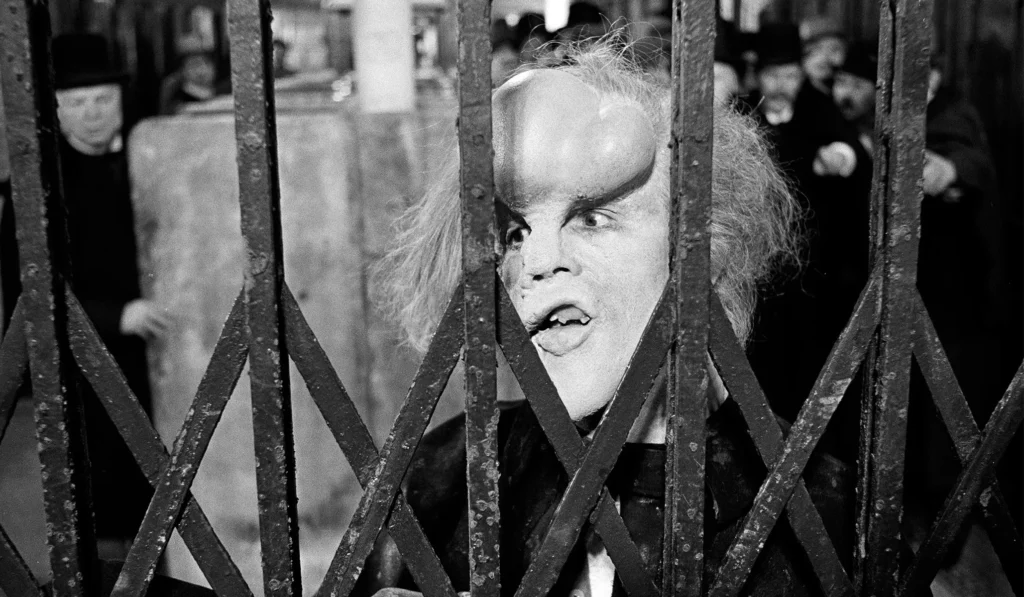
LOST HIGHWAY, 1997
“Lost Highway” is a surreal exploration of identity and guilt. Bill Pullman stars as Fred Madison, a jazz musician caught in a twisted narrative of murder and psychological unravelling. It leads him on a surreal journey through time and space. The characters are enigmatic and morally ambiguous, blurring the lines between protagonist and antagonist. With its striking cinematography, disorientating editing techniques, and surrealistic imagery, the trademark visual style of David Lynch is evident in the film.
“Lost Highway” is a dark and hypnotic journey into the depths of the human psyche, leaving audiences mesmerised long after the credits roll. The film’s nonlinear narrative and dreamlike imagery create eerie suspense. Its haunting soundtrack, composed by frequent Lynch collaborator Angelo Badalamenti, adds to its unsettling ambience. As the story unfolds, reality fractures, leaving viewers questioning the nature of identity and perception.

MULHOLLAND DRIVE, 2001
This must-watch fashion film, “Mulholland Drive,” directed by David Lynch, delves into the dark underbelly of Hollywood. Naomi Watts stars as Betty Elms, an aspiring actress whose dreams intertwine with a mysterious amnesiac woman, played by Laura Harring. As the characters navigate the shadows of Tinseltown, the film explores themes of identity and the pursuit of elusive dreams.
“Mulholland Drive” is a cinematic tour de force, a captivating journey into the heart of Hollywood’s mysteries, leaving audiences enthralled by its enigmatic tale. Its dreamlike cinematography with Angelo Badalamenti’s haunting score creates an obscure experience, mystifying audiences worldwide.
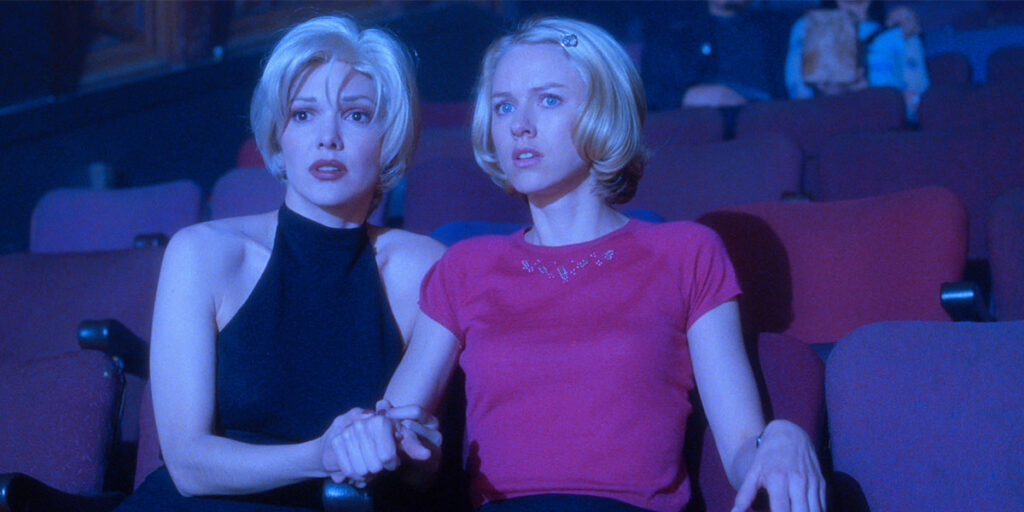
ERASERHEAD, 1977
In David Lynch’s “Eraserhead,” a young man is held responsible for a grotesque and deformed baby in a bleak industrial landscape. Jack Nance stars as Henry Spencer, who discovers he is the father, descending into madness, as his reality becomes increasingly distorted. Lynch crafts a narrative that defies conventional storytelling norms, immersing viewers in a dreamlike journey through Henry’s fractured psyche. The characters, from the enigmatic Lady in the Radiator to the unsettling Baby, embody the film’s emphasis on isolation, loneliness, and existential despair.
“Eraserhead” is a surreal and nightmarish exploration of existential dread and the anxieties of parenthood. Lynch’s atmospheric black-and-white cinematography creates a haunted world filled with industrial decay and surreal imagery. His meticulous attention to sound design adds to the film’s eerie ambience. The film remains a landmark of independent cinema, captivating audiences with its surreal visuals and lasting impact on filmmaking.
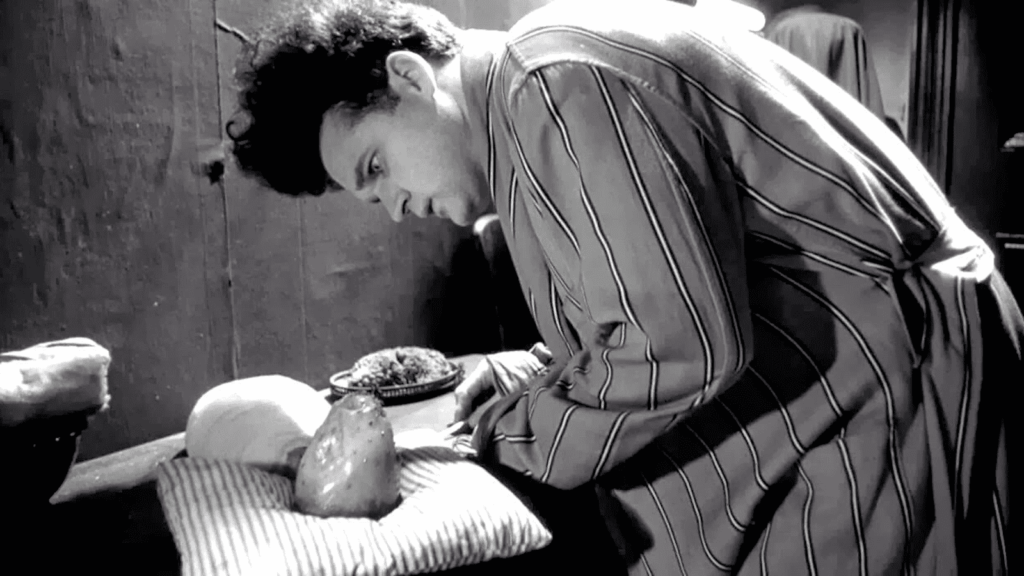
WILD AT HEART, 1990
In David Lynch’s “Wild at Heart,” Nicolas Cage and Laura Dern star as Sailor and Lula, representing a passionate couple on the run from the law and a cast of eccentric characters. From Sailor’s rebellious charm to Lula’s fierce independence, the film captivates audiences with its larger-than-life characters and hypnotic imagery. It embodies the film’s themes of defiance and self-discovery.
“Wild at Heart” is a breathtaking and audacious journey through the American landscape of love and violence. The film combines a road movie and a romantic odyssey, filled with Lynchian touches like bizarre encounters and dreamlike sequences. Its cinematography, marked by vibrant colours and striking imagery, mirrors the emotion and unpredictability of its characters. As the story unfolds, themes of love, freedom, and the darker aspects of human nature emerge, leading to a climax that is as surreal as it is emotionally resonant.


